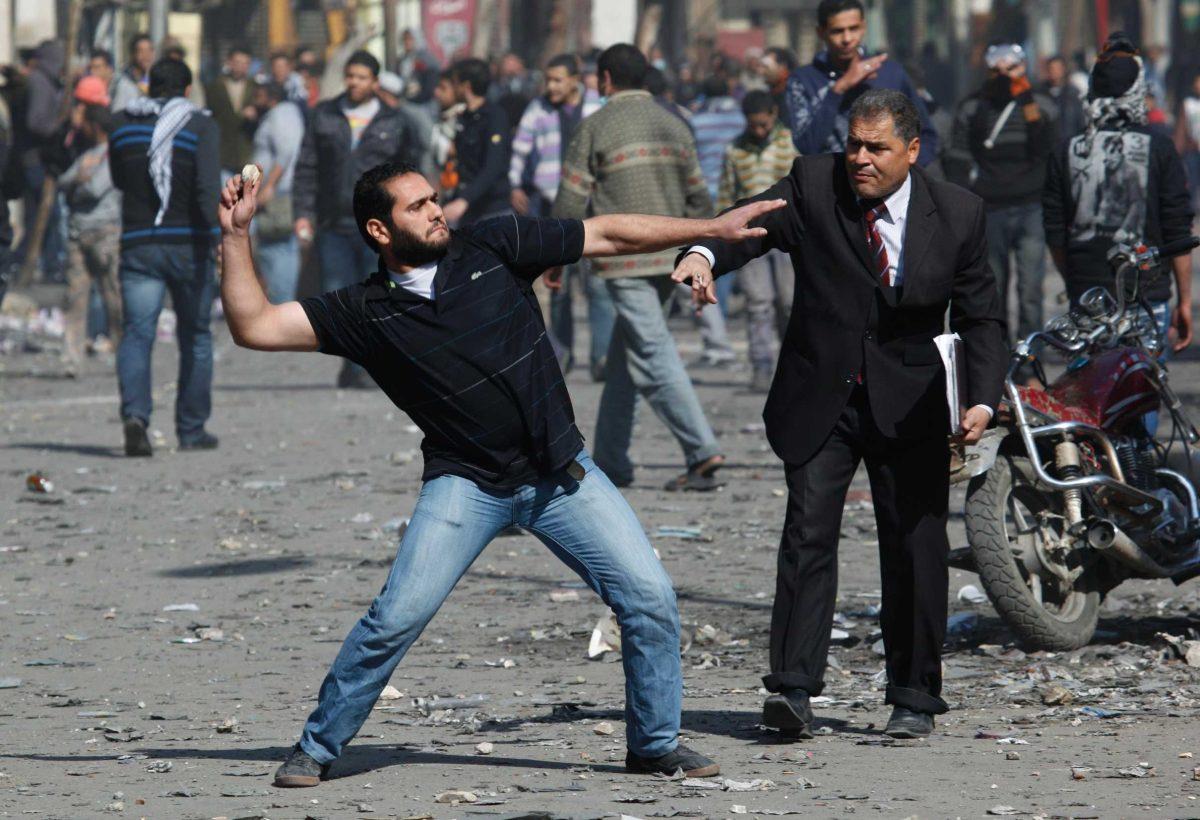Egypt must come together, overcome military rule
Tomorrow marks one year since Hosni Mubarak stepped down as president of Egypt after ruling the country for nearly 30 years.
Yet in the year since Mubarak’s resignation, Egypt has shown growing pains in its attempt to reform its governmental structure.
Immediately following the dictator’s ouster, the Supreme Council of the Armed Forces, or SCAF, assumed control of Egypt’s government on the promise to transfer power to civilians after presidential elections were held.
While Egyptians initially supported this transfer of power, for many, the new rallying call of the uprisings has become “Down with military rule.”
Since coming to power the SCAF has proven to be complacent with violating civil liberties in its attempt to keep order in Egypt. Crackdowns on protests, suppression of dissent and violations of human rights have continued at a rate comparable to or exceeding the Mubarak regime.
In the first seven months of its rule, the SCAF exercised abuse of its judicial powers when it tried 12,000 civilians in military courts — more than the total tried during Mubarak’s 30-year reign.
Freedom of expression has also been suppressed under military rule, according to Amnesty International. Journalists, bloggers and others have been taken to court over criticisms of the council and comments on the slow pace of reform while state media has continued a pro-military propaganda campaign.
Yet the most striking evidence of the SCAF’s willingness to maintain authority was a document proposed by Deputy Prime Minister Ali El Selmi.
The Selmi Document, as it’s called, granted the military council the power to veto any provisions proposed during the writing of the new constitution and prevented public or government oversight over the military budget.
The document also allowed the SCAF to appoint 80 of the 100 constitutional delegates and to create an entirely new assembly if a constitution was not drawn up in six months.
Protesters gathered again in Tahrir Square in response to the document, resulting in clashes with the police and the army.
However, the protests subsided for a time as Egypt took its first step toward civilian rule with its first parliamentary elections.
Since these elections, Egypt’s transition toward a civilian government seemed to be moving along. On Jan. 23, the SCAF handed over legislative powers to the newly elected Egyptian parliament as it convened for the first time.
A day later, the military announced it would partially suspend the state of emergency that had been in place for decades. However, the exception was in cases of “thuggery,” which many rights activists see as a broad exception that can be abused to target protesters.
Yet questions still remain for Egypt after clashes broke out again last week when 74 people were killed in soccer riots.
Since the incident, protests have again arose, calling for the military to relinquish power to civilians in response to what they see as a failure to provide security and enact real change following the fall of Mubarak’s regime.
Many activists have called for a general strike to coincide with tomorrow’s of Mubarak’s resignation. The army has responded by deploying troops and tanks throughout the country and calling for swifter presidential elections.
The future is unclear for Egypt, but what is certain is that the country must come together under civilian rule and undermine any attempt the military makes to hold onto power. Egypt’s transition toward democracy is at risk of being co-opted by a military authority that has held strong economic and political power for years.
The SCAF may have provided security and leadership after Mubarak’s fall, but it has shown that it is just as willing to use violence and intimidation to quell protests and maintain its authority.
A year ago tomorrow, the people of Egypt came together and showed that they are strong. They must again unite to take control of their country and make sure that power rests solely in their hands.
David Scheuermann is a 20-year-old mass communication and computer science sophomore from Kenner. Follow him on Twitter at @TDR_dscheu.
____
Contact David Scheuermann at dscheuermann@lsureveille.com
Manufactoring Discontent: Egypt must come together, overcome military rule
February 10, 2012





